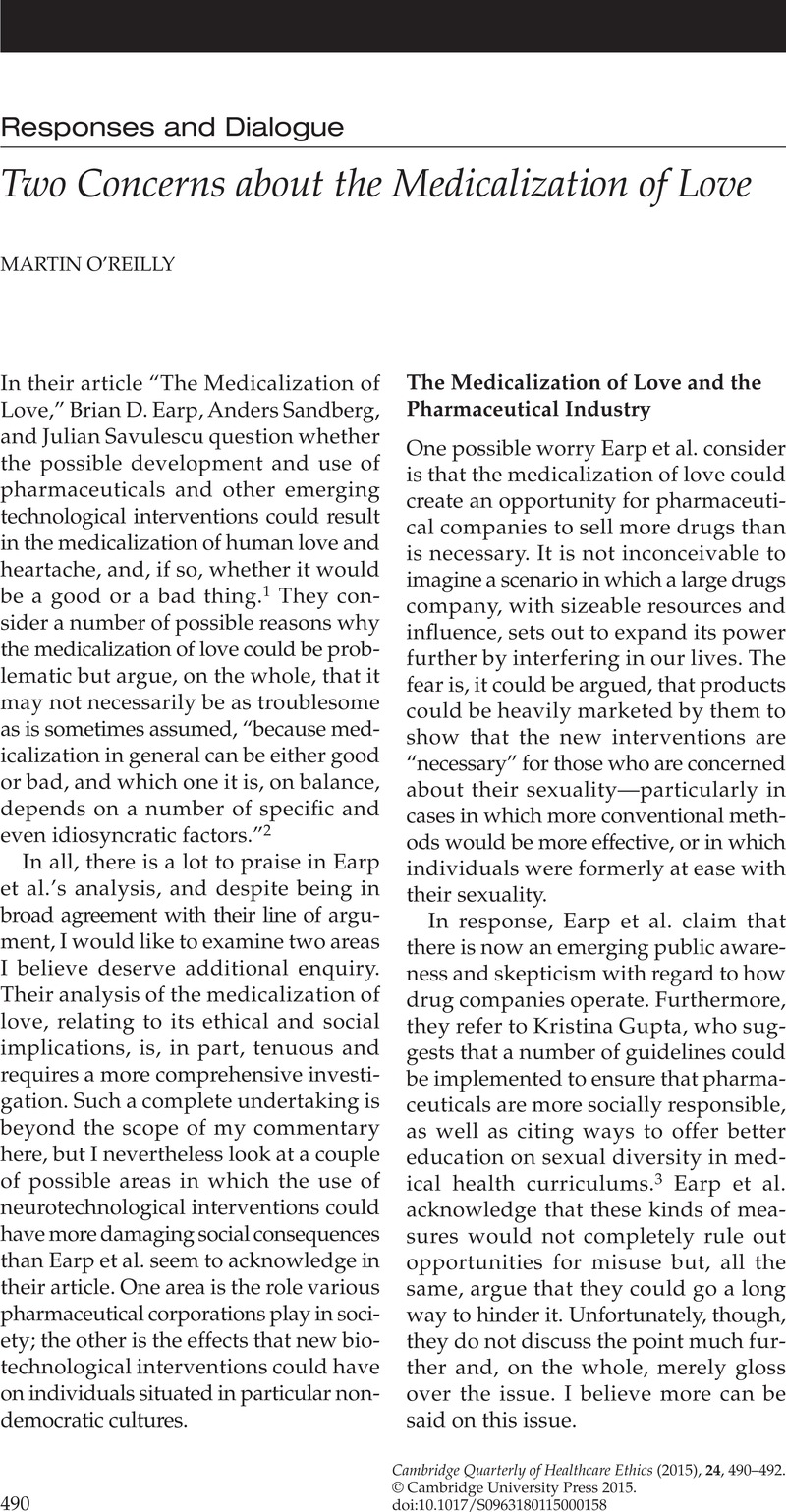No CrossRef data available.
Published online by Cambridge University Press: 14 September 2015

1. Earp, BD, Sandberg, A, Savulescu, J. The medicalization of love. Cambridge Quarterly of Healthcare Ethics 2015;24:323–36.CrossRefGoogle ScholarPubMed
2. See note 1, Earp et al. 2015, at 331.
3. Gupta, K. Protecting sexual diversity: Rethinking the use of neurotechnological interventions to alter sexuality. AJOB: Neuroscience 2012;3(3):4.Google Scholar
4. Angell, M. The truth about the drug companies. New York Review of Books 2004 July 15Google Scholar; available at http://www.nybooks.com/articles/archives/2004/jul/15/the-truth-about-the-drug-companies/ (last accessed 14 Aug 2014).
5. Jorgensen, PD. Pharmaceuticals, political money, and public policy: A theoretical and empirical agenda. Journal of Law, Medicine and Ethics 2013;14(3):562.Google Scholar
6. In considering initial prospects for change, Jorgensen, for example, has proposed “an agenda that would provide (a) a theoretical framework . . . with which to view pharmaceutical political power and (b) two empirical projects to document links between political money and pharmaceutical policy”; see note 5, Jorgensen 2013, at 565.
7. Cage, F, Herman, T, Good, N. Lesbian, gay, bisexual and transgender rights around the world. The Guardian 2014 May 17Google Scholar; available at http://www.theguardian.com/world/ng-interactive/2014/may/-sp-gay-rights-world-lesbian-bisexual-transgender (last accessed 19 Aug 2014).
8. Earp, BD, Sandberg, A, Savulescu, J. Brave new love: The threat of high-tech “conversion” therapy and the bio-oppression of sexual minorities. AJOB: Neuroscience 2014;5(1):4–12.Google ScholarPubMed
9. Singer, P. One World: The Ethics of Globalization. New Haven, CT: Yale University Press; 2002.Google Scholar
10. Buchanan, A. Better than Human: The Promise and Perils of Enhancing Ourselves. Oxford, New York: Oxford University Press; 2011, at 144.Google Scholar